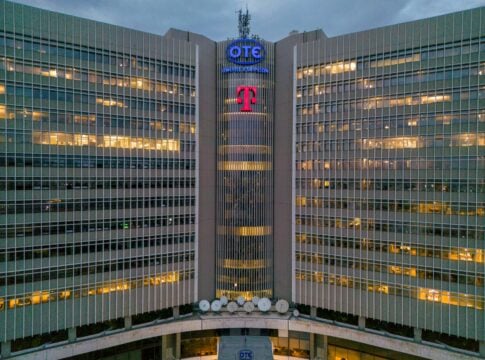Households and small and medium-sized enterprises will have the chance to obtain ultra-high-speed broadband connection through vouchers.
These vouchers will cover the cost of acquiring the relevant service and especially the cost corresponding to the initial connection.
The total economic value of the voucher amounts to 200 euros per beneficiary household or small-medium sized enterprises.
Beneficiaries
Beneficiaries of the program, which is also financed by the resources of the Recovery Fund, are all citizens (natural persons) and small and medium-sized enterprises (including commercial ones) who do not already have a broadband connection with a download speed higher than 100 Mbps and who reside or have the their headquarters/branch respectively in buildings located in the Intervention Areas. Excluded from the program are citizens and businesses that have received a subsidy under the Super-Fast Broadband action.
Services must meet the following minimum requirements:
• have either a download speed of 250 Mbps or a symmetrical speed of 100 Mbps (businesses)
• have the terminal equipment of the end user (modem/router) necessary for its operation
• be provided with a discount at least equal to the amount of the Voucher in relation to the corresponding programs (with the same speed characteristics included and by-products) offered in the rest of the country. The discount can be allocated in any way within the service contract period according to the commercial policy of the provider
• when the market share in the retail broadband market does not exceed 20% then the provider must offer at least one wholesale service corresponding to each available speed (or combination of download/upload speeds) of the retail products it offers while also allowing other providers to offer an equivalent retail service.
In the event that a wholesale provider offers services to a retail provider as part of the action, the wholesale provider must not apply discriminatory treatment practices.
In any case, the provision of the wholesale service should be made under conditions of transparency and non-discriminatory treatment and at a price not higher than the corresponding regulated price as this is determined by EETT within the framework of the regulation of the wholesale local access market. Vertical providers with less than 20% may offer wholesale services on a voluntary basis.
Upgrades
The program encourages a series of upgrades including:
– the installation of optical fiber networks in the building in order to facilitate the provision of ultra-high speed broadband services in all areas of the building (apartments, offices, shops, etc.)
– the installation of infrastructure for the future interconnection of utility network meters (electricity, natural gas) with the central point of concentration of the building’s electronic communications infrastructure.
– the installation of infrastructure for the future interconnection of the central heating boiler room and the elevator machine room with the central point of concentration of the building’s electronic communications infrastructure. Through the programme, it is expected that 120,000 buildings will undergo such work by 31 December 2025 with a total budget of 100 million euros secured through the Recovery Fund.
Goals
The main goals of the program are:
– higher penetration of ultra-high-speed broadband services, a sector in which Greece is ranked last in the EU. On the supply side, telecommunications providers already have infrastructures that cover more than 1,000,000 connections, but penetration falls short of 10%. An important inhibiting factor for increasing penetration is the cost and difficulty of installing the necessary cable infrastructure inside buildings. The action is expected to encourage building owners to install in-building cabling and facilitate the process of obtaining ultra-high-speed broadband services.
– installation of infrastructure for the future interconnection of utility network meters (electricity, natural gas) with the central point of concentration of the building’s electronic communications infrastructure.
– facilitating the integration of electricity smart meters (as well as other utility smart meters) when they are deployed by the operators of those services. Specifically, DEDDIE has already announced the ambitious program to replace all electricity meters in the country.
The existence of a suitable communication infrastructure in order to be able to connect the meters to the management system of DEDDIE is expected to significantly facilitate the work that should be carried out during the replacement of the meters.














